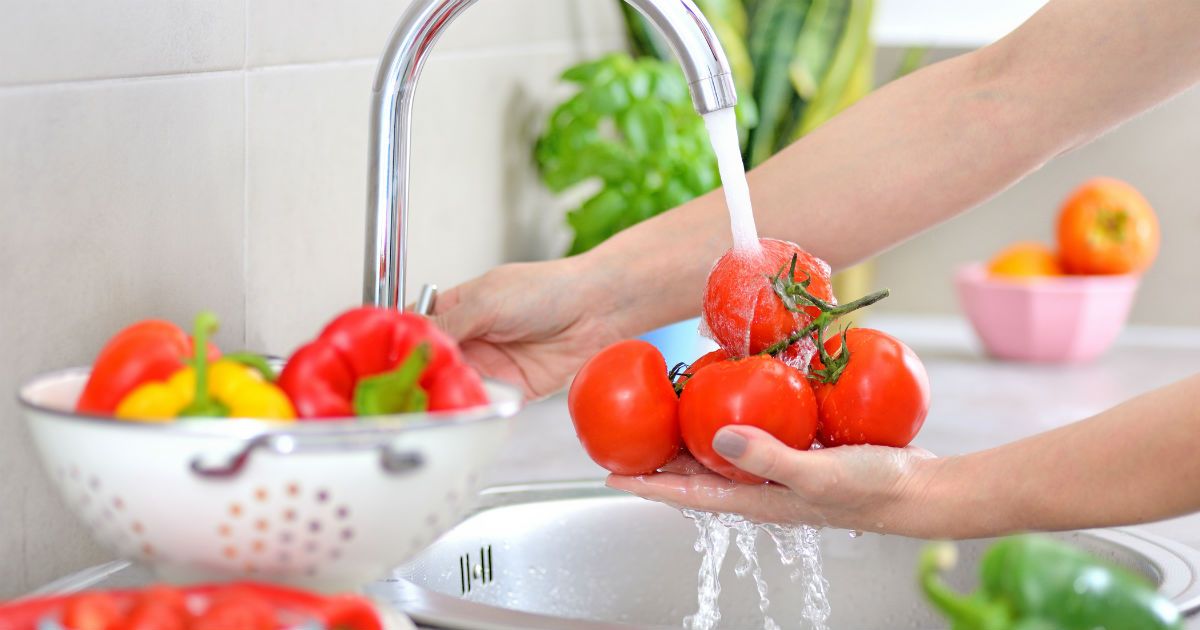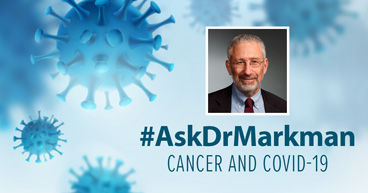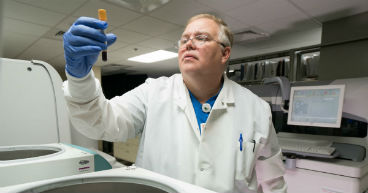
No matter where you are in your cancer journey—recently diagnosed or in treatment or survivorship—eating well-balanced, nutritious meals is vital to supporting a healthy immune system. The immune system is designed to fight off bacteria and viruses like colds and the flu, to help prevent you from getting sick or, if you do get infected, reduce the severity of symptoms. A strong immune system may also help you maintain your strength between cancer treatments and make some treatments, such as immunotherapy, work better.
Eating well, and doing it safely, is even more important amid the restrictions inherent in the COVID-19 outbreak. Fresh fruits, vegetables and dairy products play significant roles in a well-balanced diet. But when you’re trying to limit contact with others by minimizing trips to the grocery store, or the number of home deliveries, how do you keep fresh, healthy foods on hand? And how do you keep your foods safe from bacteria and other germs?
Safety tips for cleaning and storing food
Avoiding any kind of food-related illness begins with having clean and sanitary work surfaces in the kitchen, says John-Foster Oje, Director of Culinary Services at Cancer Treatment Centers of America® (CTCA), Tulsa. “Before working around food, make a weak bleach solution consisting of one tablespoon of bleach and a gallon of water. Use the bleach solution to wipe down your sink and all surface areas you’ll be working on. That kills bacteria and other foodborne pathogens,” he says.
To keep fruits and vegetables fresh longer, before storing in your refrigerator’s crisper, wash each item thoroughly with room-temperature water, then rinse with a mixture of water and either citrus juice or vinegar. Pat items dry with a clean cloth or paper towel and include two to three dry paper towels inside storage containers to absorb moisture and gases naturally released as foods ripen.
“If you clean and store fruits and vegetables this way, you should be able to get two weeks of life out of them,” Oje says. Harder fruits and vegetables with lower sugar or acid content (for example, apples, oranges, potatoes and broccoli) tend to last longer than tender items with high sugar or acid levels, such as grapes, peaches and tomatoes.
To extend the life of dairy products, you can freeze many cheeses and even milk. If you freeze dairy products, the U.S. Food and Drug Administration (FDA) recommends consuming them within three months. Alternatively, you can stock up on milk alternatives like soy or almond milk. Varieties that don’t require refrigeration and remain unopened have a shelf life of about one month.
Important steps to reduce risk
Washing your hands and making sure those around you do the same are critical food safety tips for cancer patients. Your hands come into contact with countless amounts of germs and bacteria throughout the day. The FDA has said there’s no evidence that COVID1-19 can be passed on from food or food packaging, so cross that concern off your list. But it’s always a good idea, for general food safety reasons, to wash your hands before and after handling carry out bags, grocery bags, exterior packaging and other food-related items.
Here are more helpful tips to reduce your risk:
Avoid cross contamination. Raw meats, seafood and eggs can transfer bacteria from one surface to another. Keep these high-risk foods in their own section of your shopping cart, grocery bags and refrigerator, and be sure to sanitize surfaces that come into contact with them. “The rule of thumb,” says Oje, “is use separate cutting boards, trays and containers. If that’s not an option, be sure to sanitize your cutting surfaces between preparing produce and meat.”
Refrigerate foods promptly. To reduce the risk of bacterial growth, refrigerate foods within two hours of purchasing (one hour if it’s over 90 degrees outside). Keep your refrigerator set at 40 degrees or lower, and your freezer at 0 degrees or lower.
Know safe cooking temperatures. To avoid foodborne illness, it’s essential to understand the proper cooking temperatures for meat and seafood, and use a meat thermometer to confirm they’re cooked through. In Food Safety: For People with Cancer, the FDA and U.S. Department of Agriculture recommend minimum internal temperatures for cooking meats, fish, poultry and egg dishes.
Choose reputable sources. Know where your food comes from, shop local when possible and buy items in season. These practices will help you choose fresh, nutritious food items.
The key to food safety, Oje says, is vigilance and knowledge. “Empower yourself by taking control of what goes into your body,” he says. “Knowing that it’s safe and nutritious, and knowing that it’s doing what it’s designed to do—keep you healthy—will go a long way in protecting your food supply, and your well-being.”
If you’re a cancer survivor or in active treatment and are concerned about how the COVID-19 situation may impact you or your care, please contact your care team.
Learn some do’s and don’ts for supporting a healthy immune system.



